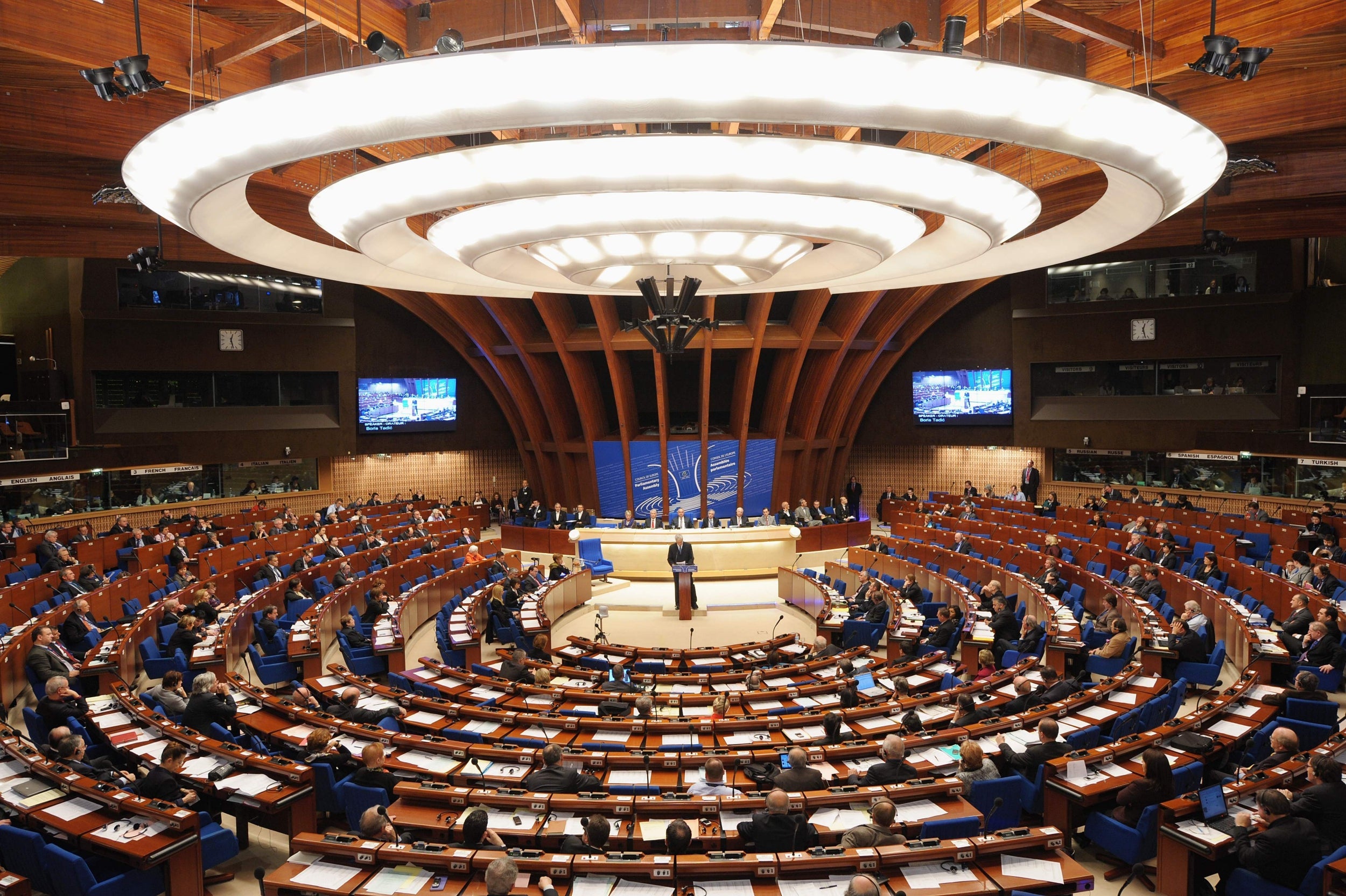UK government criticises Council of Europe decision to lift sanctions against Russia
Exclusive: Restoration of voting rights marks first time a penalty has been reversed for Moscow's seizure of Crimea

The UK government has criticised the Council of Europe’s (CoE) decision to approve restoring Russia’s voting rights, five years after it lost them due to its illegal annexation of Crimea.
Despite protests from Ukraine and Georgia, the council’s Parliamentary Assembly voted 118-62 in favour of the measure in the early hours of Tuesday, marking the first time an international sanction imposed for Moscow's seizure of the peninsula has been reversed.
It came after Russia threatened to leave entirely if it was blocked from participating in a vote to decide the council’s new secretary general.
The resolution will allow Russia to participate in its June session, but the move still faces procedural challenges.
The decision, supported by France and Germany, was designed in part to keep communication open at a time of East-West tensions, and represents a diplomatic boost for Moscow, which has spent billions of dollars integrating Crimea but failed to secure Western recognition of the move.
A Foreign Office spokesperson told The Independent the government “does not support Russia’s unconditional return” to the assembly - a view apparently not shared by Lord Richard Balfe, a Conservative member of the assembly who voted in favour of the measure.
“We have consistently called on Russia to pay all outstanding budgetary contributions to the Council of Europe, and show that it takes seriously the values of the Council of Europe – including human rights,” the spokesperson said.
“We expect Russia to pay its bills immediately, and to reaffirm publicly its commitment to all CoE obligations.”
The CoE - entirely separate from the European Union - is the guardian of the European Convention on Human Rights and creator of the European Court of Human Rights (ECHR) in Strasbourg. It is tasked with promoting the rule of law and human rights within its 47 member states.
Ukraine's pro-Western prime minister, Volodymyr Groysman, said the vote showed "a display of utter contempt for international law" and Kiev recalled the country’s permanent representative to the council.
Some 30 parliamentarians from Ukraine, Georgia and Baltic nations staged a protest by contesting the Russian delegation's credentials, formally delaying Moscow's reinstatement until another vote on Wednesday at which the credentials are expected to be ratified.
But some observers argued Russia’s absence from the council could be disastrous for citizens in the country, as the ECHR has proved to be the last resort for many Russians unable to receive justice at home.
The largest percentage of cases ruled on by the ECHR come from Russia.
Last week, French president Emmanuel Macron, who along with German leader Angela Merkel was one of the main lobbyists for the change, said non-membership harmed Russian citizens, and not its government.
“We want to ensure [Russian citizens] have the opportunity to defend their rights,” he said.
Lord Balfe told The Independent: "I think we must decide whether we are doing our best for the people of Russia by continuing to exclude their Parliamentarians from the Council of Europe.
"We need to reopen dialogue, the exclusion of Russia now needs to end. Most if not all the EU States representatives support resuming dialogue, only out of touch Cold War dinosaurs such as Sir Roger Gale want to continue with sanctions and the 'Russia hate fest'.
"I together with a majority of Members here believe that the resumption of relationships with conditions regarding issues to be addressed is the sensible way forward. We have had a lot of Churchill quotes here but not yet 'jaw-jaw is better than war-war'."
In a conference call on Tuesday, Dmitry Peskov, spokesperson for Vladimir Putin, said: "This is a very positive thing. We can only be positive about it."
"This is not a diplomatic victory for Moscow but for common sense. Parliament assembly can't work without the contribution of Russian delegation."
Provocatively, the Russian government immediately nominated Leonid Slutsky, chairman of the Duma's foreign affairs committee, to be vice chair of the parliamentary assembly. Mr Slutsky is still included in EU sanctions brought in response to the Russian annexation of Crimea.
While the West accuses Moscow of covert operations to try to undermine its democracies, European diplomats said part of the reason for supporting its return was economic. Moscow's departure left a €90m (£81m) hole in the council's budget - around seven per cent of contributions.
Additional reporting by agencies
Join our commenting forum
Join thought-provoking conversations, follow other Independent readers and see their replies
Comments